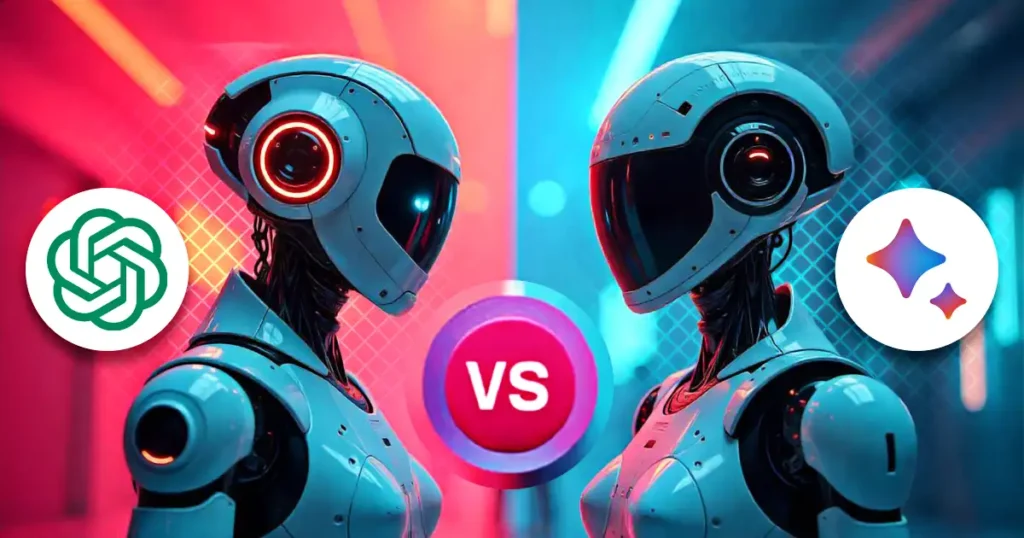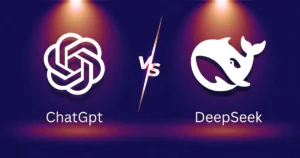In the rapidly advancing world of artificial intelligence, two contenders stand out as leaders in conversational AI: ChatGPT by OpenAI and Google Gemini by Google. Both tools aim to transform how we interact with AI, offering advanced conversational capabilities, creative assistance, and robust problem-solving features. But which one emerges as the smarter option? Let’s explore their unique strengths, features, and limitations in this comprehensive analysis.
Introduction to AI Conversational Tools

Conversational AI tools have become indispensable for various industries, from customer support to content creation. ChatGPT and Google Gemini represent the latest in this technological evolution, each with distinct capabilities shaped by their creators’ expertise and vision.
Overview of ChatGPT
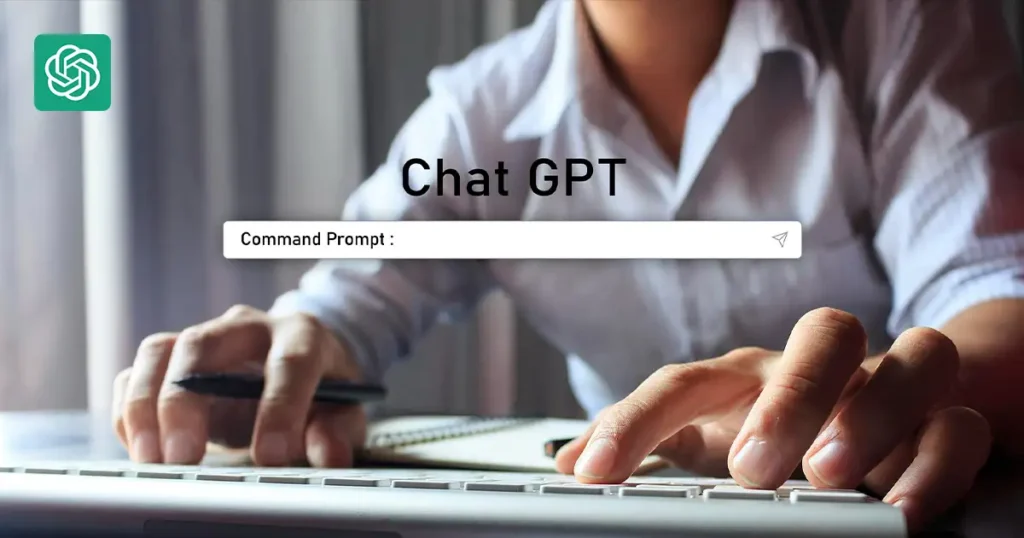
1. Development and Background ChatGPT, developed by OpenAI, is a product of extensive research into natural language processing. It is built on the Generative Pre-trained Transformer (GPT) architecture, which uses massive datasets to generate human-like text responses.
2. Key Features
- Creative Output: Known for its ability to generate stories, poetry, and creative content.
- Versatility: Capable of assisting in a range of fields like coding, content creation, and customer service.
- Customizability: Developers can fine-tune it for specific industries or tasks.
- Accessibility: Available through OpenAI’s platform and APIs for integration.
3. Applications ChatGPT is widely used for:
- Generating creative content such as blogs, scripts, and social media posts
- Educational assistance
- Simplifying technical concepts
- Code generation and debugging
4. Limitations
- Outdated Information: As of its training cutoff, it lacks access to the latest data.
- Context Management: Struggles with maintaining context in lengthy conversations.
- Bias Risks: Like any AI trained on large datasets, it may reflect biases in its responses.
Overview of Google Gemini
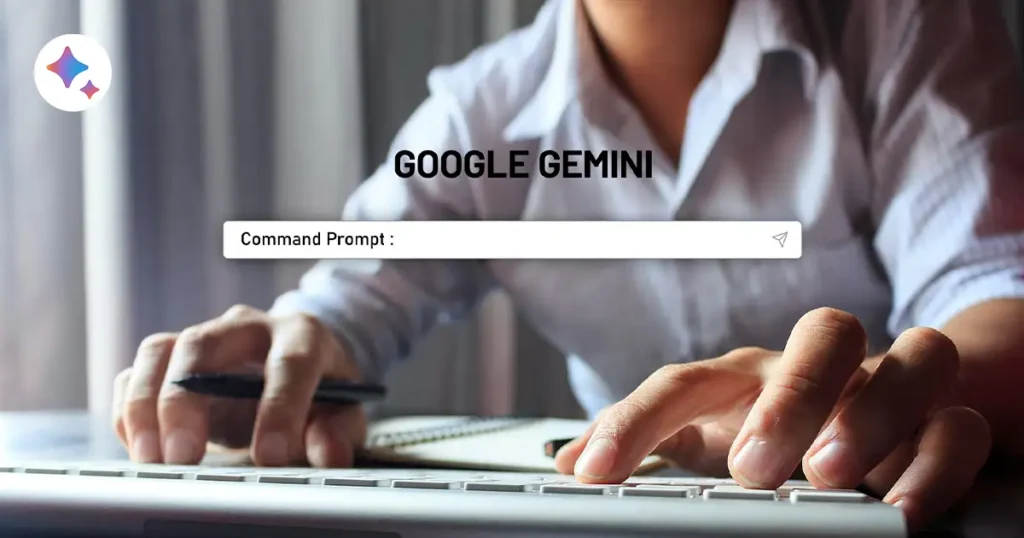
1. Development and Background Google Gemini is Google’s next-generation AI model, designed to integrate state-of-the-art multimodal capabilities. Gemini builds upon the success of Google’s previous AI models while introducing groundbreaking features that leverage Google’s extensive data ecosystem.
2. Key Features
- Multimodal Capabilities: Gemini can process and generate both text and images, setting it apart from traditional text-only models.
- Real-Time Data Integration: With access to live updates, Gemini offers real-time responses for dynamic queries.
- Enhanced Contextual Understanding: It excels at maintaining context in extended interactions.
- Integration with Google Services: Seamlessly works with Google’s ecosystem, such as Search, Workspace, and more.
3. Applications Google Gemini is particularly useful for:
- Real-time research and data analysis
- Multimodal content generation
- Enhancing productivity within Google’s ecosystem
- Educational tools with dynamic content presentation
4. Limitations
- Evolving Model: As a newer platform, it is still refining its creative capabilities.
- Privacy Concerns: Given Google’s advertising-driven model, data privacy remains a concern for some users.
- Limited Availability: May currently be less accessible than ChatGPT for non-Google users.
Head-to-Head Comparison: ChatGPT vs Google Gemini
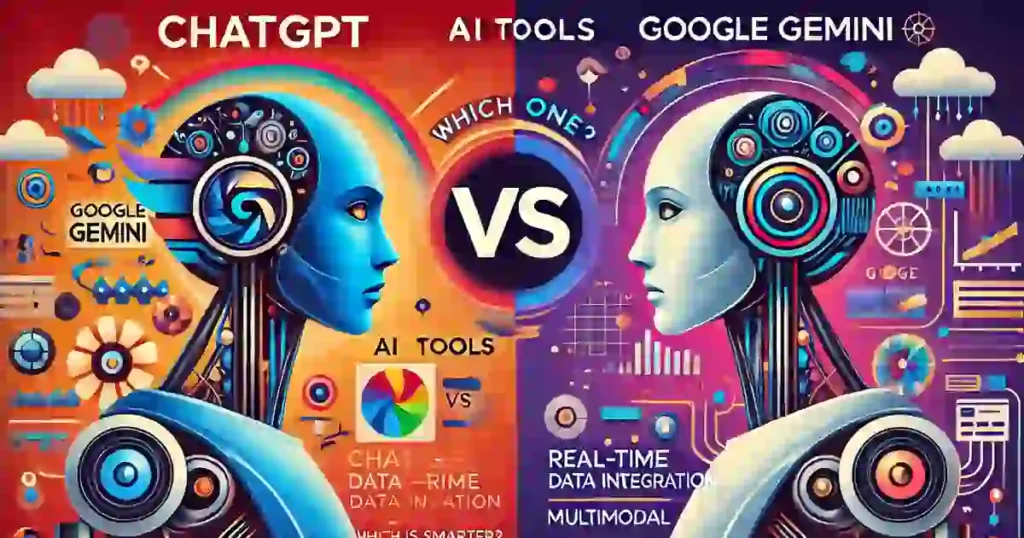
1. Accuracy and Information Retrieval
- ChatGPT: Relies on pre-trained data, making it accurate but sometimes outdated.
- Google Gemini: With real-time data access, Gemini excels in providing current and precise information.
2. Creativity
- ChatGPT: Outperforms in creative writing, storytelling, and imaginative tasks.
- Google Gemini: Competent but more focused on factual and data-driven outputs.
3. Multimodal Capabilities
- ChatGPT: Limited to text-based interactions.
- Google Gemini: Leads with its ability to process and generate text and images simultaneously.
4. Usability
- ChatGPT: Simple and accessible through OpenAI’s user-friendly platform.
- Google Gemini: Deeply integrated into Google’s suite, ideal for users already in the ecosystem.
5. Cost and Accessibility
- ChatGPT: Offers free and subscription-based plans.
- Google Gemini: Currently free but may introduce premium plans in the future.
Real-World Use Cases
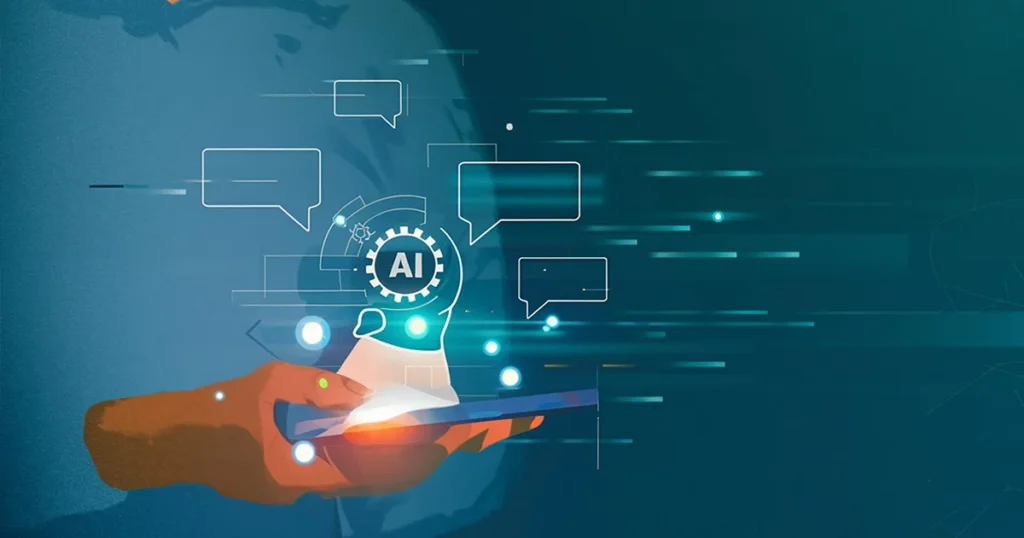
1. Content Creation
- ChatGPT: Preferred by writers for its nuanced and imaginative content.
- Google Gemini: Excels in combining text and images for visually rich outputs.
2. Education
- ChatGPT: Simplifies concepts effectively for students and educators.
- Google Gemini: Dynamic content presentation makes it a robust educational tool.
3. Research and Analysis
- ChatGPT: Helpful for summarizing and analyzing pre-existing data.
- Google Gemini: Ideal for real-time research and fact-checking.
4. Professional Productivity
- ChatGPT: Assists in drafting emails, reports, and presentations.
- Google Gemini: Seamlessly integrates with Google Workspace for enhanced productivity.
Future Potential

ChatGPT OpenAI is continuously enhancing ChatGPT’s contextual understanding and real-time data capabilities. Future updates may close the gap in areas where it currently lags.
Google Gemini Google’s commitment to AI innovation positions Gemini as a game-changer. Its integration of multimodal features and real-time capabilities suggests a promising trajectory.
Conclusion: Which One Should You Choose?

Your choice between ChatGPT and Google Gemini depends on your specific needs:
- If you value creative content generation and nuanced interactions, ChatGPT is a strong contender.
- For real-time information and multimodal tasks, Google Gemini is the smarter option.
Both tools are remarkable examples of AI’s potential, and their strengths often complement each other. Using them together might offer the best of both worlds, maximizing productivity and creativity.
